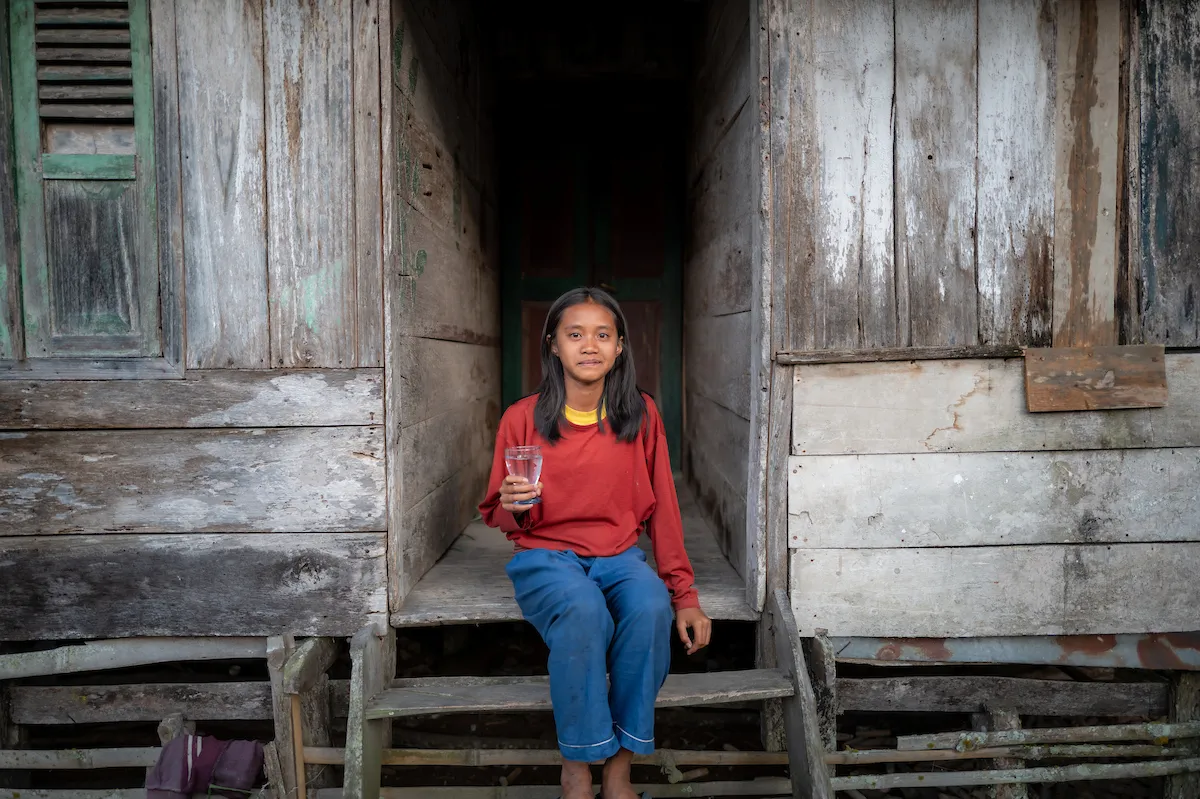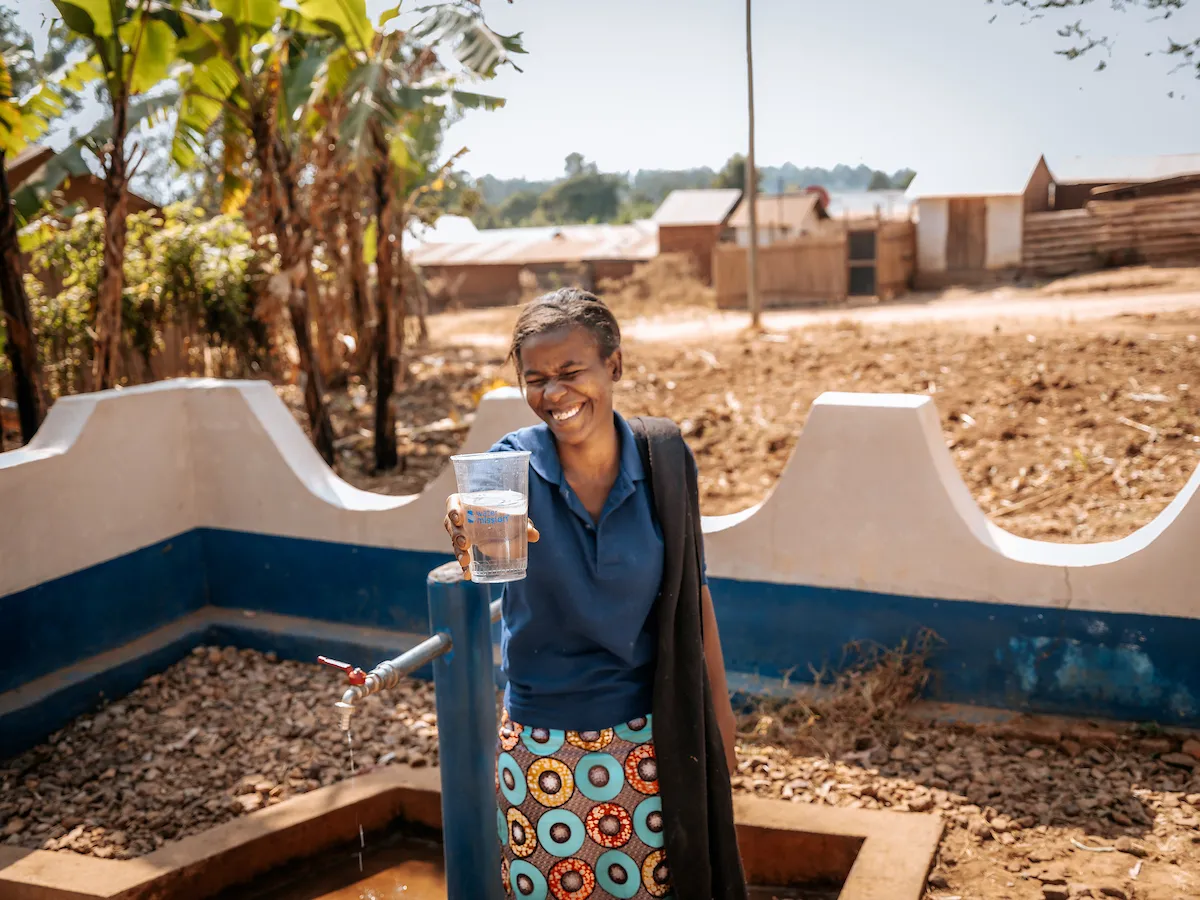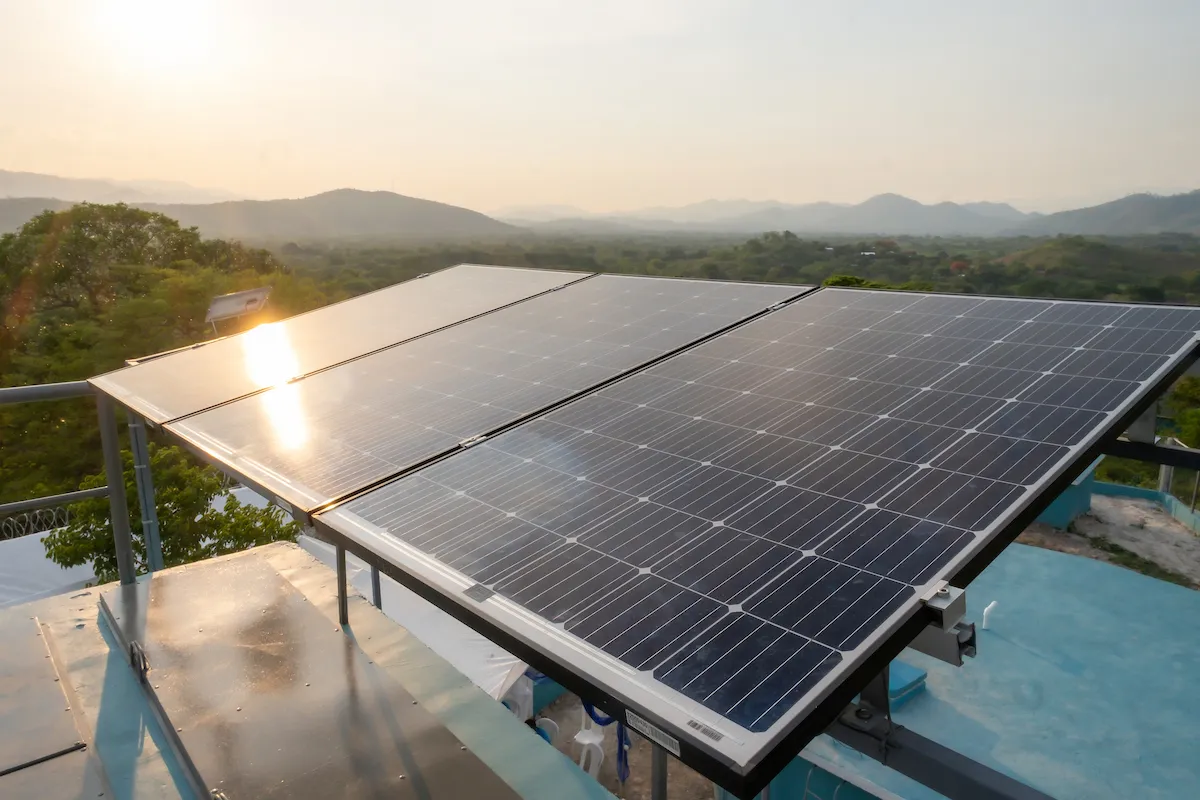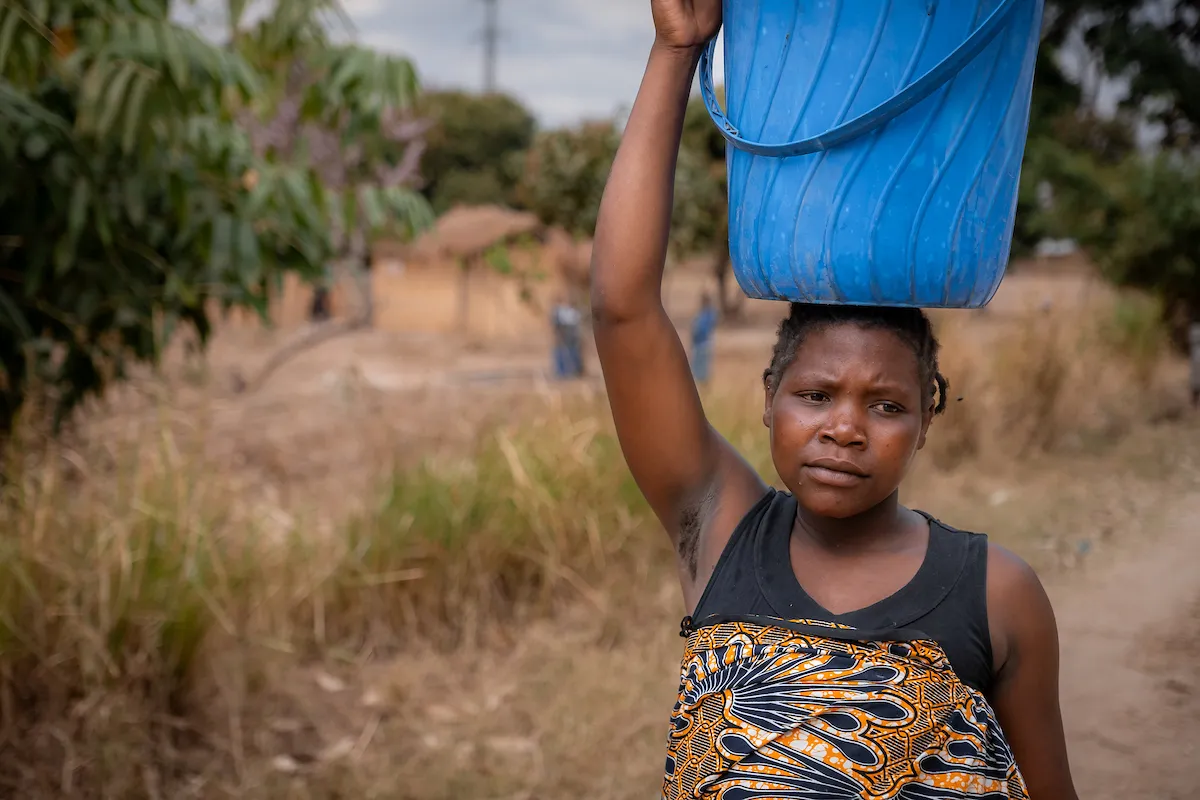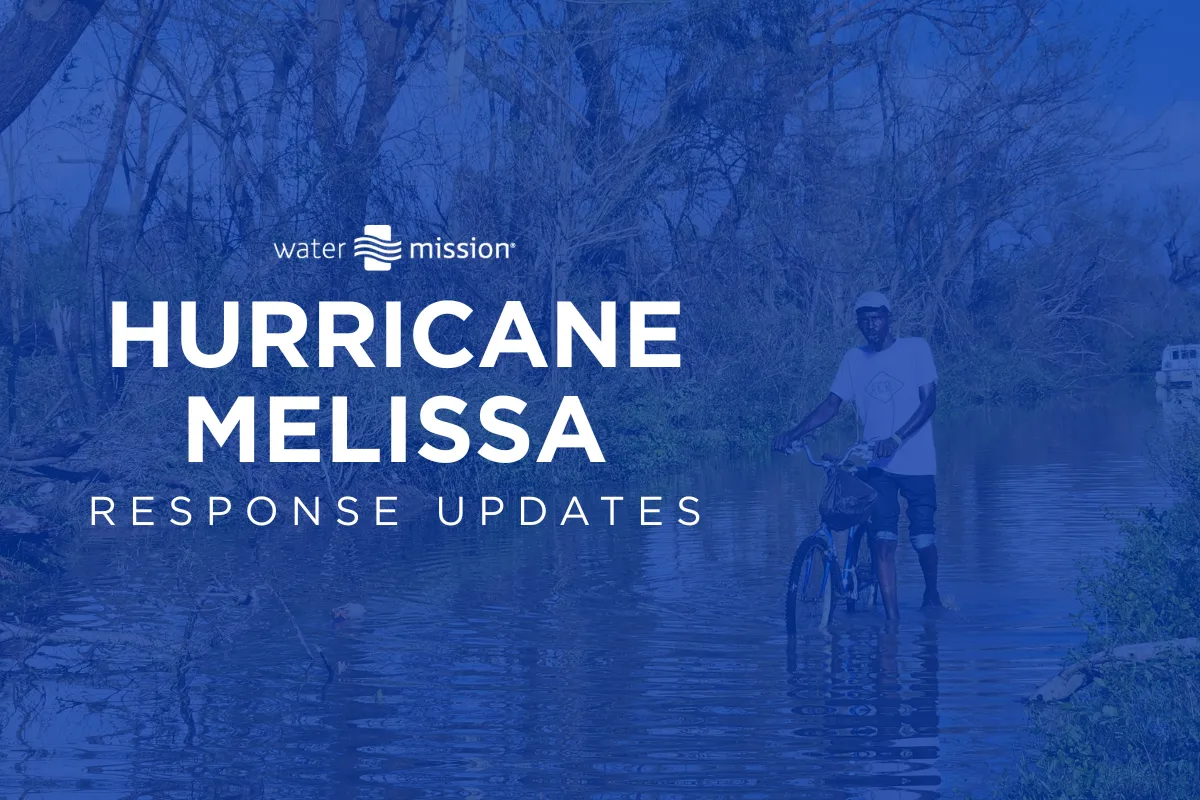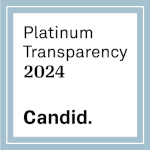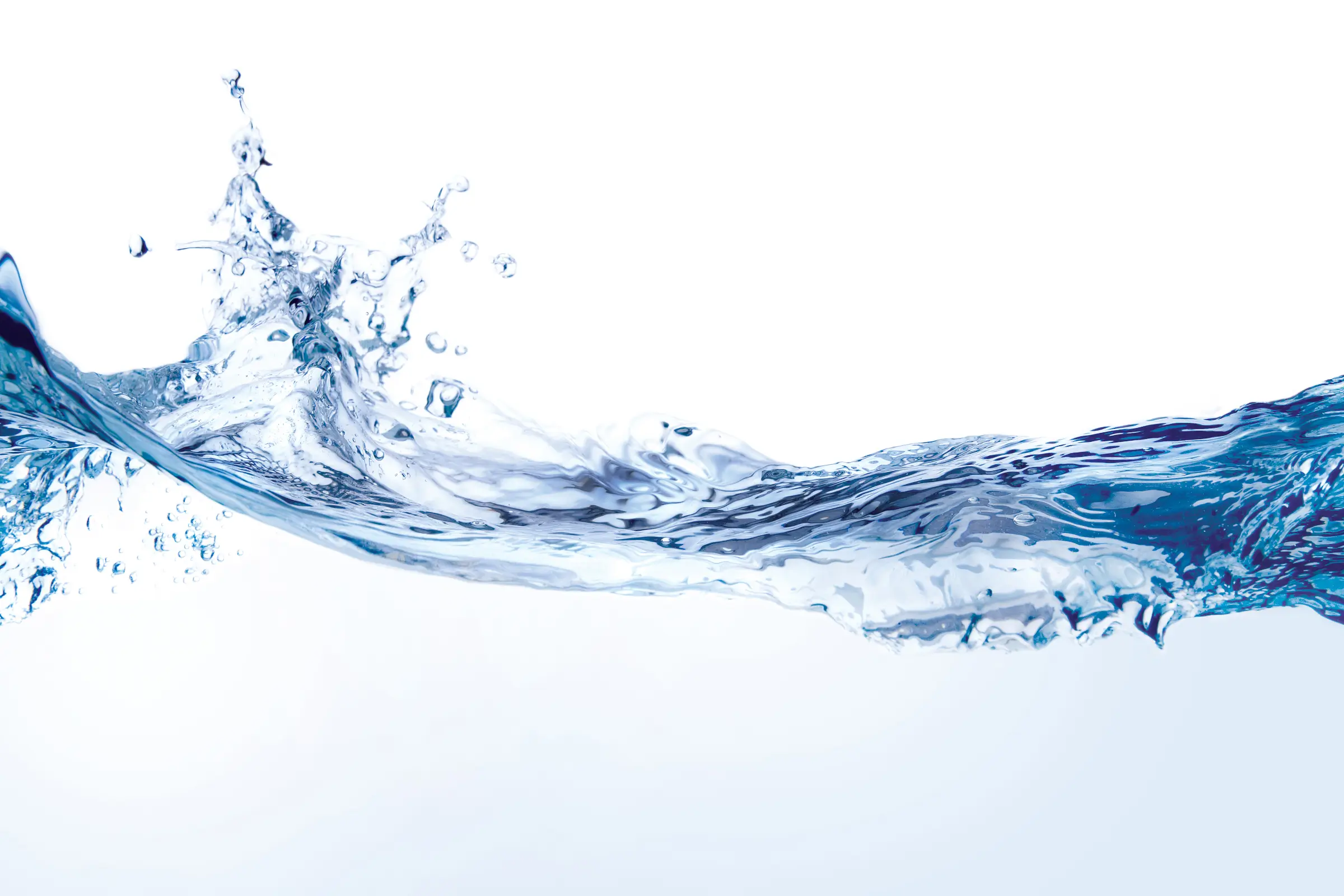World Malaria Day
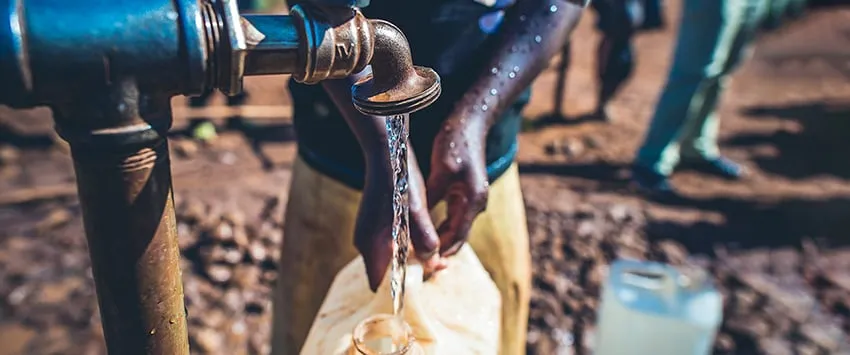
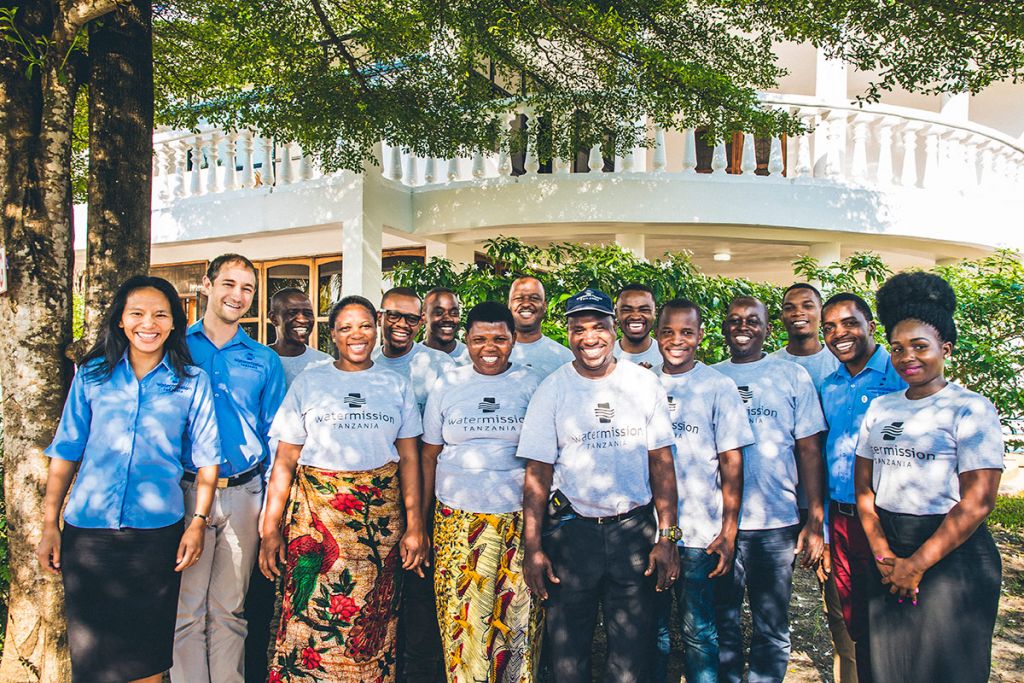 Water Mission's team in Dar es Salaam, Tanzania[/caption]
David returned home to Charleston with malaria while the city was being evacuated for Hurricane Irma in 2017. He stayed in bed for three days, lethargic and delirious from a high fever. “I can’t recall much from those three days,” he told us. “I was out.”
But he remembered that his body ached and his mind swirled, and that he could not immediately seek medical help because nearby facilities were closed. Once they opened, and David was able to drive, he arrived at a clinic only to find that the nurses did not know how to treat him. They had never treated anybody with malaria. They could not even test him because it wasn’t common for a clinic in South Carolina to have a malaria test kit.
Water Mission's team in Dar es Salaam, Tanzania[/caption]
David returned home to Charleston with malaria while the city was being evacuated for Hurricane Irma in 2017. He stayed in bed for three days, lethargic and delirious from a high fever. “I can’t recall much from those three days,” he told us. “I was out.”
But he remembered that his body ached and his mind swirled, and that he could not immediately seek medical help because nearby facilities were closed. Once they opened, and David was able to drive, he arrived at a clinic only to find that the nurses did not know how to treat him. They had never treated anybody with malaria. They could not even test him because it wasn’t common for a clinic in South Carolina to have a malaria test kit.
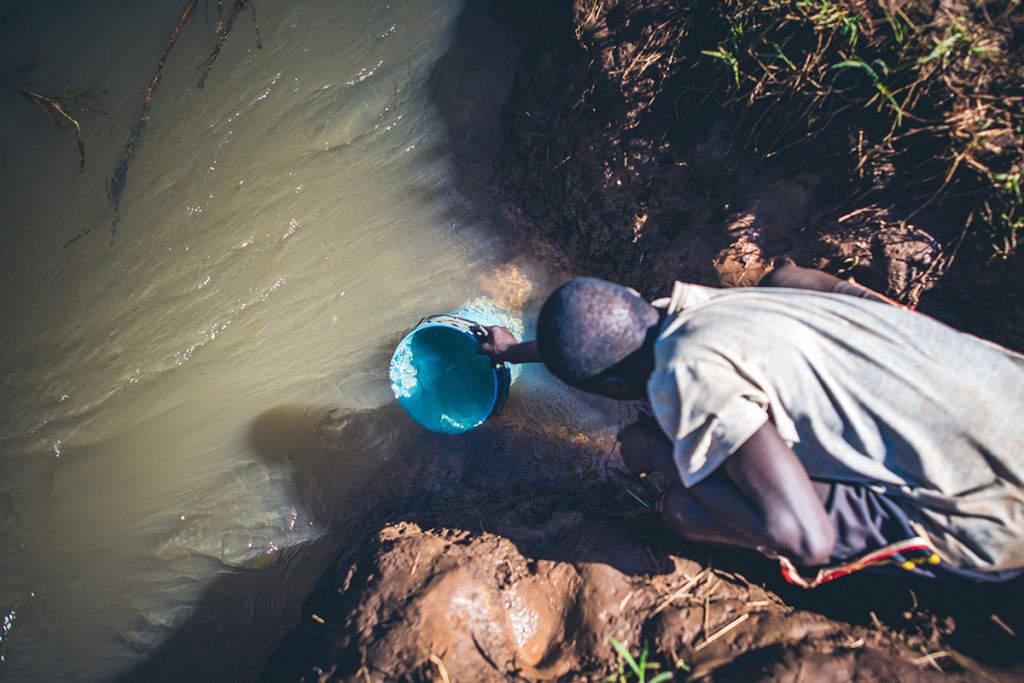 A dirty water source in Tanzania that can breed mosquitoes[/caption]
By contrast, it is sadly not unusual for our Tanzania and Uganda project managers to see malaria frequently in the communities where they work. Tanzania and Uganda are two of 11 countries named by the World Health Organization (WHO) as “high burden” locales.
Today, on World Malaria Day, we shine a light on the global battle against this devastating disease and how your partnership with Water Mission is helping the communities we serve to prevent its spread. Malaria, which is caused by a parasite and transmitted through mosquito bites, produces high fevers, shaking chills, and flu-like symptoms in those that are infected. Children are especially vulnerable: The five-and-under population tragically makes up 70 percent of malaria deaths.
A dirty water source in Tanzania that can breed mosquitoes[/caption]
By contrast, it is sadly not unusual for our Tanzania and Uganda project managers to see malaria frequently in the communities where they work. Tanzania and Uganda are two of 11 countries named by the World Health Organization (WHO) as “high burden” locales.
Today, on World Malaria Day, we shine a light on the global battle against this devastating disease and how your partnership with Water Mission is helping the communities we serve to prevent its spread. Malaria, which is caused by a parasite and transmitted through mosquito bites, produces high fevers, shaking chills, and flu-like symptoms in those that are infected. Children are especially vulnerable: The five-and-under population tragically makes up 70 percent of malaria deaths.
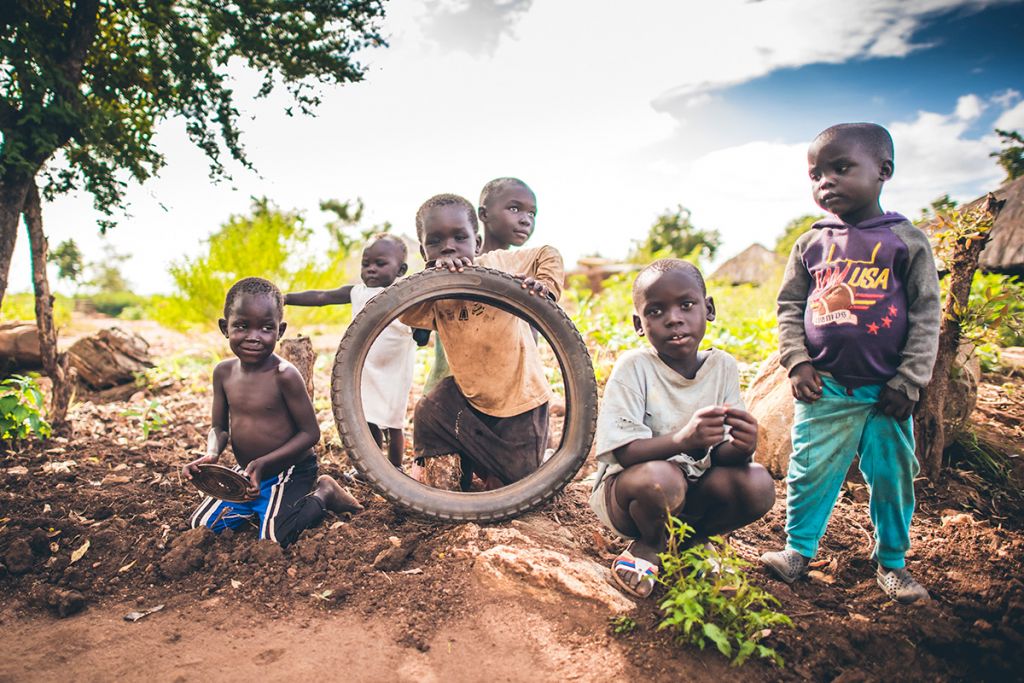 “Culturally, malaria is comparable to the flu here in the United States. People in Uganda don’t want to get it, but they expect it at some point,” said Chris Bryan, project manager for our Africa programs. Adults expect it for themselves, but they also anticipate it for their children.
According to the November 2018 World Malaria Report, there were 219 million cases of malaria in 2017, up by two million cases since 2016. This steep upsurge follows a steady decades-long decline and has urged the WHO to implement its “High Burden to High Impact” approach — a program focused on eliminating malaria in the 11 countries most burdened by the disease. The strategy will be carried out primarily by the countries affected.
“Culturally, malaria is comparable to the flu here in the United States. People in Uganda don’t want to get it, but they expect it at some point,” said Chris Bryan, project manager for our Africa programs. Adults expect it for themselves, but they also anticipate it for their children.
According to the November 2018 World Malaria Report, there were 219 million cases of malaria in 2017, up by two million cases since 2016. This steep upsurge follows a steady decades-long decline and has urged the WHO to implement its “High Burden to High Impact” approach — a program focused on eliminating malaria in the 11 countries most burdened by the disease. The strategy will be carried out primarily by the countries affected.
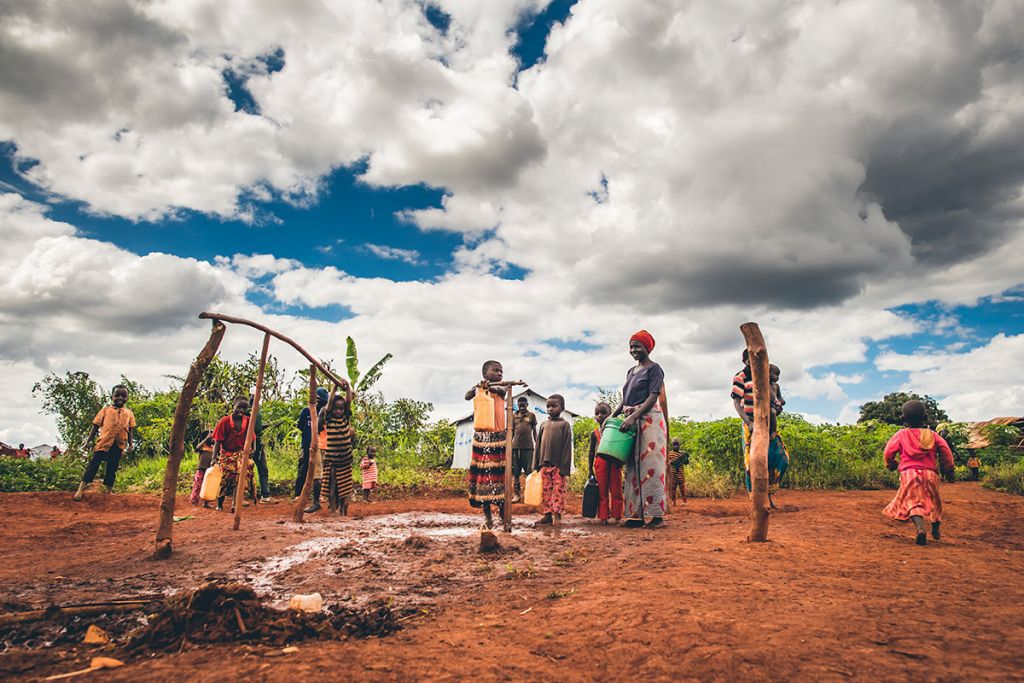 And thankfully, progress is already being made. Malawi recently became the first country to immunize children against malaria, using the only licensed vaccine to protect against the disease. In addition, Ghana and Kenya plan to introduce the vaccine in the next few weeks.
In addition to vaccines, preventative education, and highly effective insecticide-treated mosquito nets, safe water also plays a key role in equipping communities to protect against and eliminate the disease. A person walking to collect water from a distant source often comes across puddles and hoof prints: collections of “fresh” water that can become habitats for malaria-carrying mosquitoes.
And thankfully, progress is already being made. Malawi recently became the first country to immunize children against malaria, using the only licensed vaccine to protect against the disease. In addition, Ghana and Kenya plan to introduce the vaccine in the next few weeks.
In addition to vaccines, preventative education, and highly effective insecticide-treated mosquito nets, safe water also plays a key role in equipping communities to protect against and eliminate the disease. A person walking to collect water from a distant source often comes across puddles and hoof prints: collections of “fresh” water that can become habitats for malaria-carrying mosquitoes.
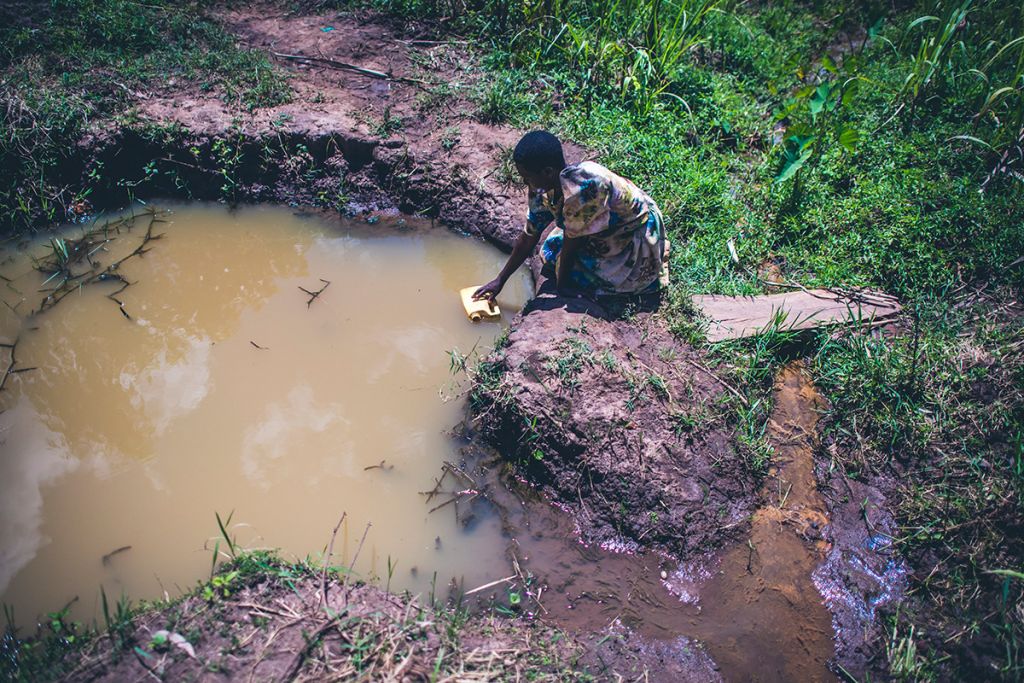 “We primarily use protected wells with enclosed tanks in Tanzania and Uganda,” David told us, explaining that these systems prevent water from being exposed to a variety of contaminants — or becoming mosquito breeding grounds — after being purified. “Before our projects, many people used either seasonal lakes or shallow, hand-dug wells as their main source of water. Both are stagnant and can be good places for mosquito breeding.”
“We primarily use protected wells with enclosed tanks in Tanzania and Uganda,” David told us, explaining that these systems prevent water from being exposed to a variety of contaminants — or becoming mosquito breeding grounds — after being purified. “Before our projects, many people used either seasonal lakes or shallow, hand-dug wells as their main source of water. Both are stagnant and can be good places for mosquito breeding.”
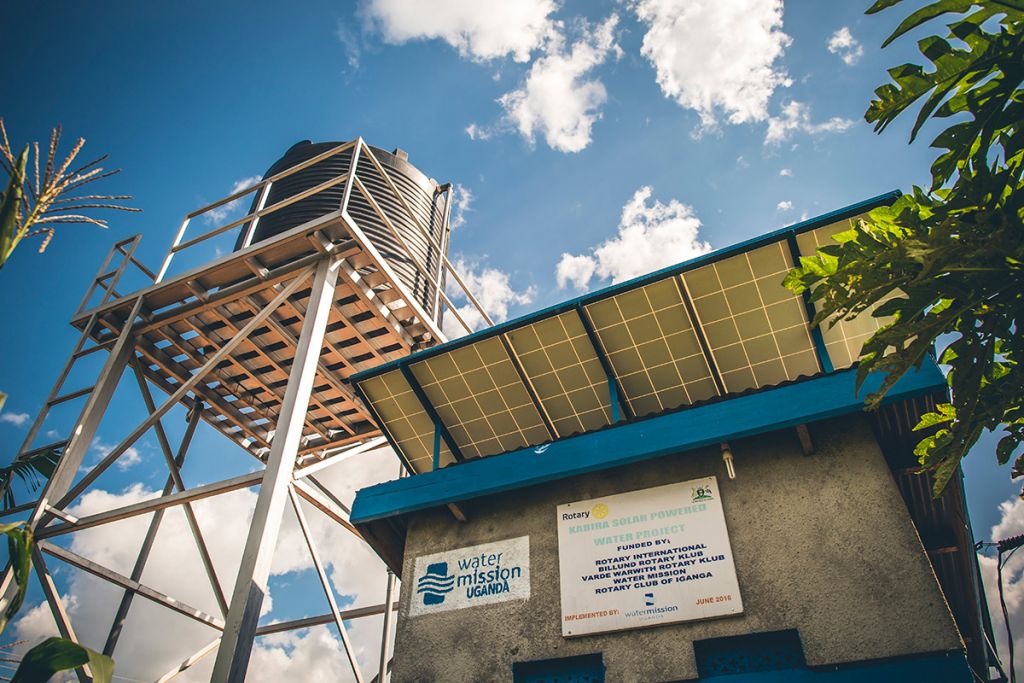 Protected water storage tank in Uganda[/caption]
Communities without safe water and proper sanitation are also vulnerable to waterborne diseases, such as cholera, which compound the consequences of a weakened immune system — making the already-sick more vulnerable to the effects of a possibly fatal mosquito bite.
In our work to provide safe water in rural communities and disaster zones, we frequently form partnerships and friendships with men, women, and children at high risk of contracting malaria. On World Malaria Day and every day, we pray specifically for people affected by health and humanitarian crises around the world. We also stand firm in the fact that your partnership in providing sustainable, transformative safe water solutions does save lives, and its effects ripple out tenfold.
Protected water storage tank in Uganda[/caption]
Communities without safe water and proper sanitation are also vulnerable to waterborne diseases, such as cholera, which compound the consequences of a weakened immune system — making the already-sick more vulnerable to the effects of a possibly fatal mosquito bite.
In our work to provide safe water in rural communities and disaster zones, we frequently form partnerships and friendships with men, women, and children at high risk of contracting malaria. On World Malaria Day and every day, we pray specifically for people affected by health and humanitarian crises around the world. We also stand firm in the fact that your partnership in providing sustainable, transformative safe water solutions does save lives, and its effects ripple out tenfold.
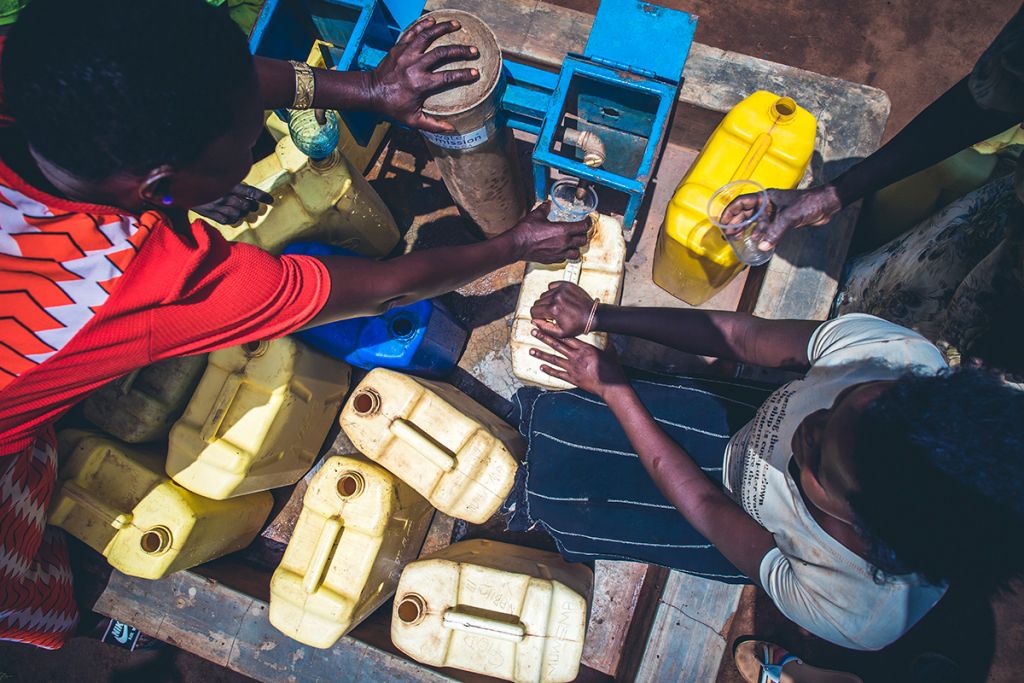 Join us in prayer
Join us in prayer
Related Impact Stories
